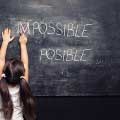
The dreaded State Exams are coming up once again and I, as a teacher and a mother, am on edge. As much as we prepare the children for the exam, we never really know what to expect. Being an educator is rough as it is. We teachers are nervous for the students in our classrooms. But being a mother of a third grader who is preparing for his first year of exams is even tougher. I feel for him, as I never had this type of anxiety or pressure when I was young.
It’s not healthy to stress out our children over these exams. As much as it’s important to pass them, standardized tests do not determine or indicate our kids’ level of intelligence or academic potential. Passing state exams simply allows them to move on to the next grade level, but doesn’t determine whether they will be successful once there.
In our home, I am sure the only one worrying is me! My son shows no signs of anxiety and I like it that way. As a teacher, I do the same for my students in the classroom. There is no pressure, we prepare through our everyday routines—last year my children scored top in English Language Arts and second best in Math and that was good enough for me. We walked away from that New York State Exam without any meltdowns and the children did well. Here is what to expect according to The New Common Core State Standards.
ENGLISH LANGUAGE ARTS (ELA)
- Children should be able to comprehend reading material that is above their grade level. In order to achieve this, they should be reading books above their grade level months in advance of the test. Have them read daily. A great way to encourage this is to get them active on a Kindle or take that walk to the library.
- Help kids identify the central theme of their literary selection. What was the story about? How did you come to that conclusion? What are the clues in the text? You want to have these ongoing dialogues with your children as much as possible so that when the test comes, it’s second nature to them to analyze the text in this manner.
Read Related: Preparing Your Child for Middle School
- Having children make inferences is about more than just answering questions based on a text. It implies using everything you know about the selection—prior knowledge, and what you know about the subject or topic—to infer what will happen next. The information isn’t given to the student in the text so they have to think and analyze it in order to arrive at a conclusion. Empower them to use background knowledge when analyzing their reading material.
- When answering a question, don’t allow your child to simply say, “The answer is…” Teach your child to be a confident reader and say, “My answer is ____ because it’s stated in paragraph two in the story.”
WRITTEN RESPONSES
- Don’t allow your kids to to respond to a question by using email or text jargon and short hand. Let’s get our children back into the old school letter-writing ways! Have them write with a clear focus and give a concise answer and stay on topic. That will strengthen their writing skills and penmanship.
- When writing, have your child make connections to other texts. They need to be able to make those text-to-text connections or even text-to-world connections. The greatest moments are the text-to-self connections where they are able to personally relate to something they wrote about.
- Have children focus on spelling, punctuation, and grammar rules. I often hear parents say spelling doesn’t equate intelligence but it is a joy to read a properly punctuated essay written using proper grammar. This comes with a lot of practice in writing and having someone regularly look over your written work.
MATHEMATICS
- It is no longer acceptable to simply provide an answer to a mathematical question. Students must show their thought process, explaining in detail the steps in word form.
- When reading a word problem, students must interpret the method that is being used and understand why they are using it.
It’s obvious that standardized tests serve a purpose in our current state of education. Whether we agree with that or not, we can’t expect the teachers to be on their own in preparing our children for such an undertaking. With a balanced perspective from us parents and a few new habits integrated into their routines, we can help our little scholars succeed on their tests and do better in school overall!











